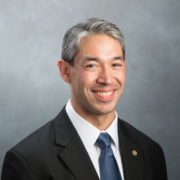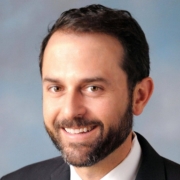Mayor Ron Nirenburg: A Model Job-Training Program
This week, Labor Secretary Marty Walsh visited San Antonio, where he praised NewDEALer Mayor Ron Nirenberg’s Ready to Work program. The $200 million program has a goal to train 28,000 low-income residents for better paying jobs by the end of 2025. The program formally launched in May, and so far nearly 6,000 people have applied. During his visit, Secretary Walsh said “We need to be more intentional about investing in workforce development, and we need to be doing it with cities…Programs like Ready to Work should be replicated around the country.” Read more about the program here, and also check out the Labor Department’s Good Jobs Initiative, which is seeking to improve job quality nationwide.












